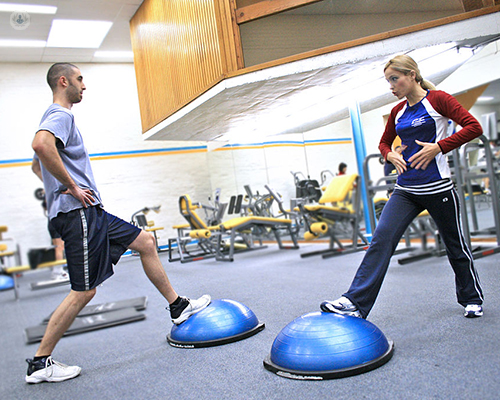The benefits and risks of exercise: how exercise affects your body
Written by:Just as everyone knows water is wet, the fact that exercise is good for you is common knowledge. However, as with many things in our daily lives, it comes with its own set of risks. In this article Dr Taher Mahmud of the London Osteoporosis Clinic discusses the ways that exercise can help your body, and how you can use it to your advantage rather than putting it under additional strain.

Exercise and common associated risks
The risks related to exercise are much, much fewer than the benefits associated with it. One of the most common occurrences is a musculoskeletal injury. These include strains, tears, stress fractures, traumatic fractures, and inflammation. Whilst injuries like this are relatively common, they are also less serious and the body can usually recover, particularly with the correct course of treatment. Some ways to reduce the risk of musculoskeletal injury include:
- Regularly exercising so your body gets in the habit
- Warming up before exercising, and stretching correctly after the exercise session is over
- Knowing your limits, and participating in activities which are right for your body and its capabilities
- Improving muscle strength and balance
Exercise and more serious risk
Some of the more serious risks surrounding exercise relate to cardiac problems, particularly in those who have a past history of heart problems. Arrhythmia, which refers to an irregular heartbeat, carries an increased risk during exercise. In those with heart problems, regular check-ups with a doctor are advised, but studies show that exercise training may reduce arrhythmia risk.
Habitual physical activity can help to lower the risk of cardiac problems, even in the case of rarer heart conditions such as sudden cardiac death. In those who have a history of heart problems, exercise programs should be planned and tailored to the individual. There are a number of ways to approach exercise, including endurance training, interval training, and resistance training.
In those with asthma or other respiratory conditions, care should be taken to avoid bronchoconstriction, a narrowing of the airways in the lungs. Many with these conditions can reduce the risk by altering their training techniques and taking certain medications.
Many of the risks associated with exercise are related to pre-existing conditions, or the incorrect management of medical conditions. With the correct approach to exercise, and where appropriate, medical advice and monitoring, risks can be greatly reduced and should be no reason to avoid regular exercise. If in doubt it is best to seek help from a exercise professional; at the London Osteoporosis Clinic we published some exercise videos to help with correct technique, and give our patients further support.
Read more about the benefits of exercise in our second interview with Dr Mahmud here.



